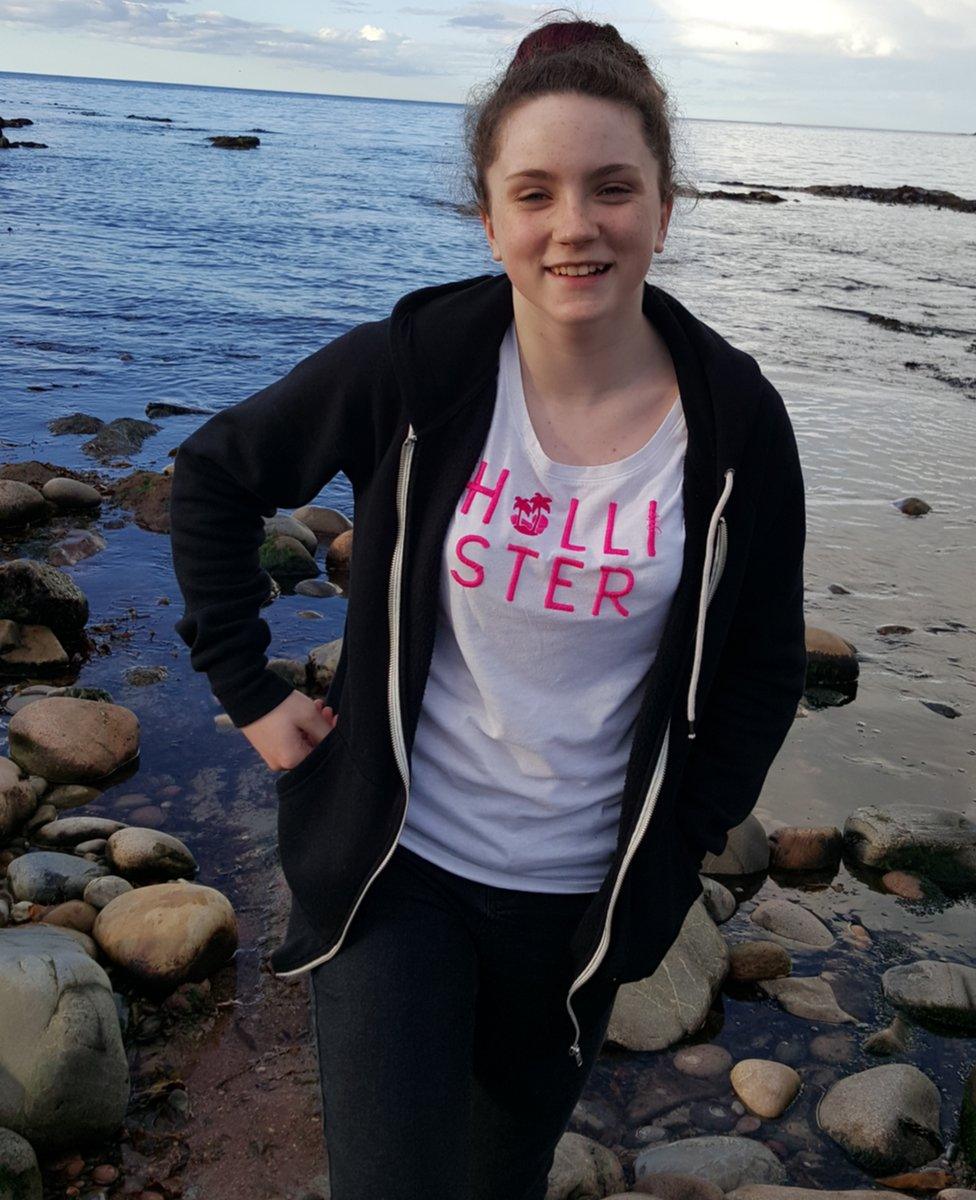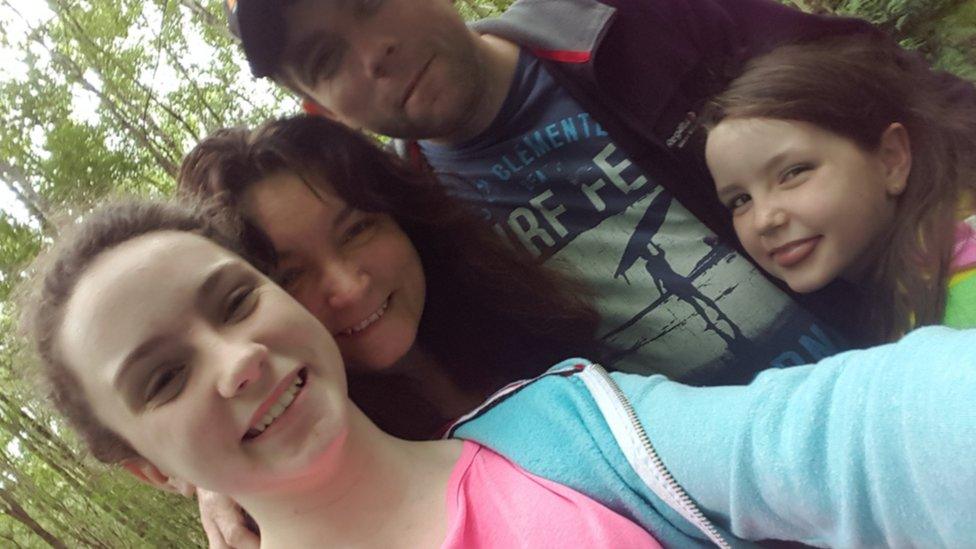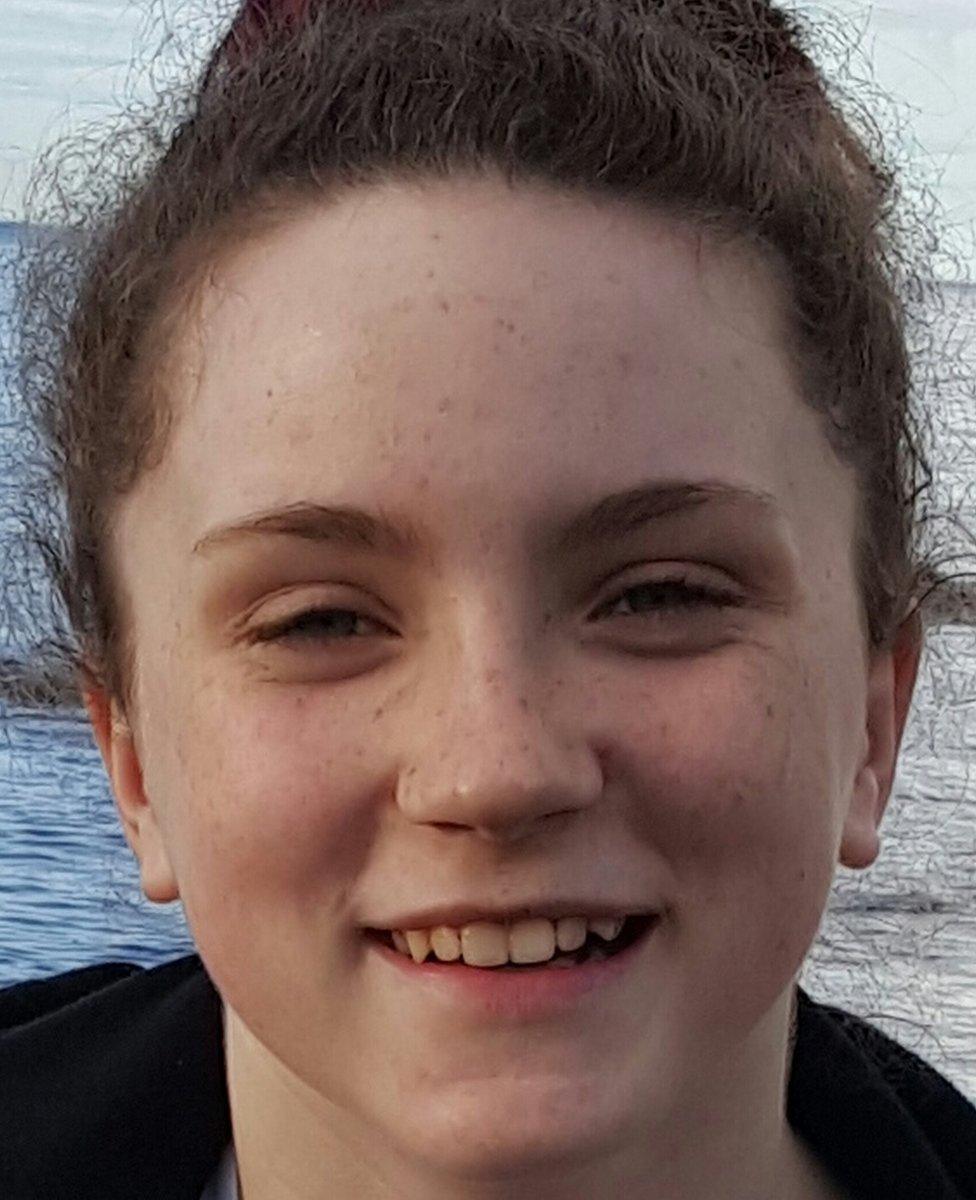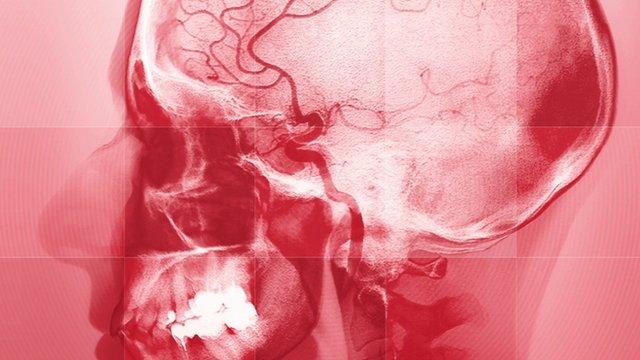'I had a stroke at 14'
- Published

Brenna Collie was a healthy, sporty 14-year-old who did not expect to have a stroke
When 14-year-old Brenna Collie from Aberdeenshire told her mother she was having a stroke she was told to stop being a "drama queen".
Brenna, from Strichen, was too young and too healthy to have a stroke, her mother thought.
She has since learned that about 400 UK children have a stroke every year, leaving many with severe physical and mental impairments.
Brenna told BBC Scotland's John Beattie programme: "I had a bug the day before so I was off school.

Brenna's family said the 14-year-old had made an amazing recovery
"I had blurry vision throughout the day and I thought that I was just feeling ill and tired so I just went up to my room to lie down and sleep.
"I woke up and I had a message on my phone. I picked up my phone and my left hand just went straight and dropped it.
"I was like 'ok, that's not right'. I thought I was just dehydrated so I went to have a drink but I dropped that as well."

Brenna is one of 400 young people who have a stroke in the UK every years
Brenna says that she tried to speak and "I did not sound right".
She went to get her mum and had to hold on to the walls because "my legs were missing the floor".
The 14-year-old says she remembered a TV advert about strokes and told her mother she was having one.
"My mum was like 'no, you are being so dramatic Brenna'," she says.
Her mother says: "She made a massive entrance into the room and threw herself on to the bed and I thought 'typical teenager, big drama entrance'.
"But then I had a look at her and I thought 'oh no, something's definitely not right.
"Her left side was jerking and moving really weirdly. I thought there's something definitely not right here and it was just horrific to see."
Elaine Roberts from the Stroke Association on spotting the signs of a stroke
Brenna says they went to see their GP who thought it might be a stroke and she was taken by ambulance to Aberdeen for a CT scan.
"Once they got a CT scan they saw the blood clot at the back of my neck or my brain," she says.
They performed emergency thrombolysis to break down the blood clot in Aberdeen before flying her to a specialist neurological unit in Edinburgh.
Her mother says: "To start with we did not know whether she would walk again, it was just horrendous.
"For the first week or so she was just lying in bed and we just thought 'is this going to be it?'.
"She slowly came to and it was just an amazing journey we have had with her and I don't think I would have been able to do what she has done.
"The first time she stood up with the physiotherapist, it was just so emotional, I'm nearly tearing up just thinking about it."

Guidelines on childhood stroke
Dr Vijeya Ganesan, a paediatric neurologist who was involved in drafting the guidelines, said the causes in children were different to adults, where smoking and high blood pressure were often responsible.
She said: "I think a really important factor is infection. It seems that affected children are often predisposed to respond to infection in an unusual way, which can result in a stroke.
"However, the signs of stroke in children are very similar to the signs in adults - weakness at the side of the face, difficulty in speaking, difficulty moving one side of the body.
"Stroke in children can have more subtle features, such as fitting affecting one side of the body or sudden severe headaches, for instance."

Two months after the stroke, Brenna says she is starting to get back to where she was.
She says: "Just now I'm doing half days at school again and I'm back to my swimming and I'm back to my archery.
"I'd say the next goals I would have would be to return to full days at school and to return to my hockey."
Kathleen says her daughter has been "absolutely amazing from start to finish".
"She's completely determined. Her thrawn side, as we put it, has played in her favour."
- Published29 October 2014
